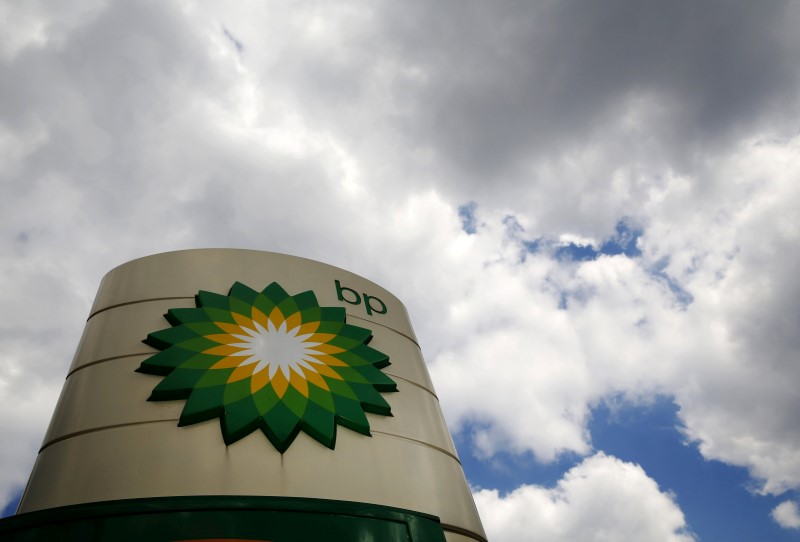By Karolin Schaps
LONDON (Reuters) - Major oil companies' first-quarter results have so far confounded expectations, but volatile trading operations and a likely fall in production mean the good times are unlikely to last.
Europe's big oil producers have been expected to report their worst quarterly earnings yet amid the market downturn but instead BP (LON:BP), Total and Statoil have delivered share-boosting first-quarter results.
BP made a first-quarter profit of $532 million (365 million pounds), against expectations of a $140 million loss, boosted, the company said, by refining and a strong performance by its trading unit. The same unit had a weak quarter at the end of 2015.
The British oil major does not disclose figures for its energy trading divisions, or give details on its performance.
"Given the lack of visibility on the repeatability of these profits, we have largely maintained our downstream (refining and trading) earnings estimates," said Biraj Borkhataria, analyst at RBC Capital Markets, without disclosing his estimates.
France's Total, whose net adjusted profit beat expectations by $400 million, also relied on a strong performance by its trading and petrochemicals units, which are equally difficult to read.
Statoil's trading unit suffered from lower margins, it said, but a cost-cutting programme helped the company beat expectations. Underlying production rose by 2 percent in the first quarter, after adjusting for divestments.
BP's production rose 5.2 percent, without contribution from Russian oil major Rosneft, in the first three months of the year, mainly due to production sharing agreements (PSAs).
BP has warned production will fall in the second quarter because of fluctuations in PSA payments and planned field maintenance.
Analysts struggle to predict higher production from PSAs as contributions to oil majors on behalf of national governments differ depending on oil prices.
In Iraq, companies are being repaid their dollar investments in oil, meaning that during times of high oil prices they get one barrel to compensate for every $100 of investments, while during times of low prices they can get as many as three barrels.
Total's production rose 4 percent in the quarter, equivalent to the target it had set for the full year, said Alexandre Andlauer, analyst at AlphaValue, which means it is unlikely to exceed that in coming quarters.
"The production surprise is a one-shot in our view but a welcomed one," he added.

European oil majors Eni and Shell (LON:RDSa) report first-quarter results on April 29 and May 4, respectively.